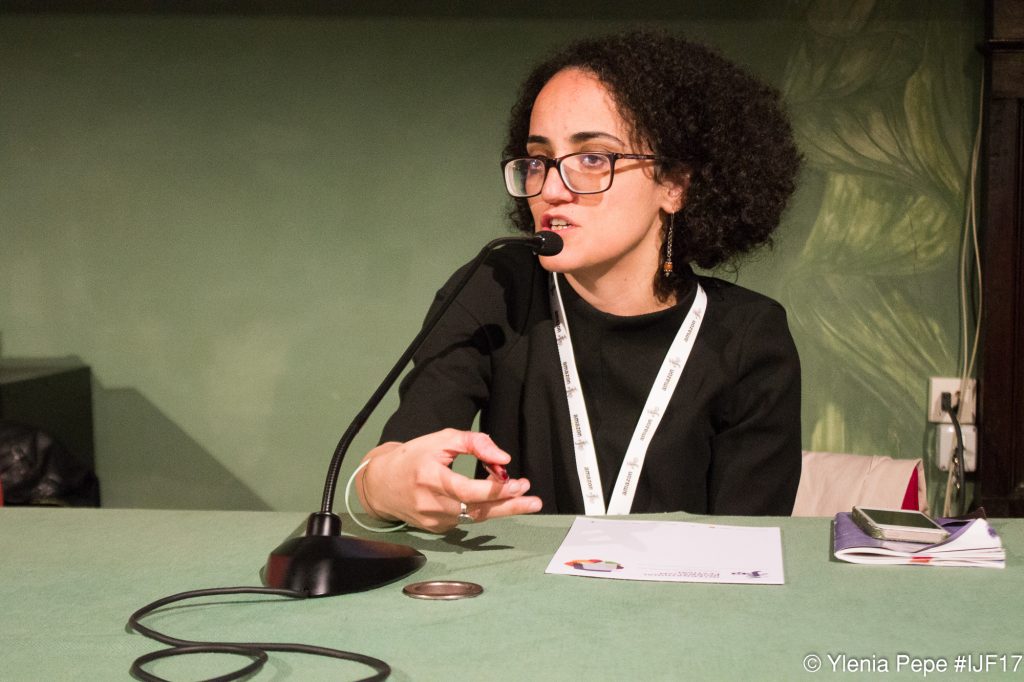
In Egypt, a 2011 uprising against the rule of longtime authoritarian leader Hosni Mubarak raised hopes of increased media freedom after decades of slow liberalisation of the press. Protests in Tahrir square brought together many media outlets in a mission to tell the stories of the revolution, with narratives that often countered the Egyptian regime’s. Privately-owned media organisations started expanding newsrooms and hosting independent voices, bringing activists on mainstream TV shows.
“It was a deep moment of openness,” said Lina Attalah, who works for Mada Masr, one of the few independent media outlets in Egypt. “We were controlling the narrative in one way or another until 2013,” she added.
Together with Declan Walsh, Cairo bureau chief for the New York Times, Lina Attalah was speaking at the panel ‘Doing journalism in Egypt: from the Arab spring to El-Sisi’, moderated by Laura Cappon, RAI 3 journalist.
Two years after the uprising, the short-lived islamist government headed by Mohamed Morsi was unseated in a military coup. The subsequent violent repression of human rights – which has led to more than 60,000 arrests – raised exponentially the risks both to Egyptian journalists not aligned with the regime and to foreign correspondents.
Reporters Without Borders now calls the press freedom situation in Egypt “extremely worrying” – and out of 180 countries included in the organisation’s 2016 press freedom index, Egypt is now ranked 159th. At least 25 journalists are currently behind bars for their work in the country, according to the Committee to Protect Journalists.
For foreign correspondents too, Egypt represents a “very controlling environment,” said Walsh. “I have a press card, but my press card does not allow me to do my work as I’d like to,” he added.
Citizens on the streets of Cairo can often call the authorities if a journalist is seen asking questions. Others might refuse to be interviewed. Journalists can also be escorted out of cafes and other public spaces they were trying to ask questions in, he said.
The brutal murder of Italian student Giulio Regeni in 2016, who many in Europe believe was killed by Egyptian security services, also shifted the perception of foreign citizens, including journalists, in Egypt.
“There is a sense among foreigners and some journalists that a red line beyond which security services won’t go has shifted and Egypt has become a more dangerous place,” Walsh told the panel. But as a foreigner, Walsh said he has a certain degree of “understood invisible protection” in the form of embassies and diplomacy from his home country. “For Egyptian journalists, that protection does not exist.”
With young independent publications such as Mada Masr, which, as the website says, was “born out of crisis in 2013” there are emerging attempts to create “media counter cultures to the existing mainstream media,” Attalah said. Mada Masr was also “born out of inevitability,” the website tells their readers, to secure a home for a dislocated practice of independent journalism that did not survive in mainstream organizations.
Within the media landscape, censorships often occurs. “Your harshest critic will be the mainstream media, the popular TV stations,” Walsh said. In order to challenge the regime’s narrative and the impoverished press freedom, “it helps a lot to be working in a group,” Attalah said.
Mada Masr is “a group of like-minded journalists with socio-political affinities,” which makes it easier to not give in to fear. These initiatives, often funded by international grants but working on sustainable business models, are fundamental to report on a country that is a key Western ally in the Mediterranean.